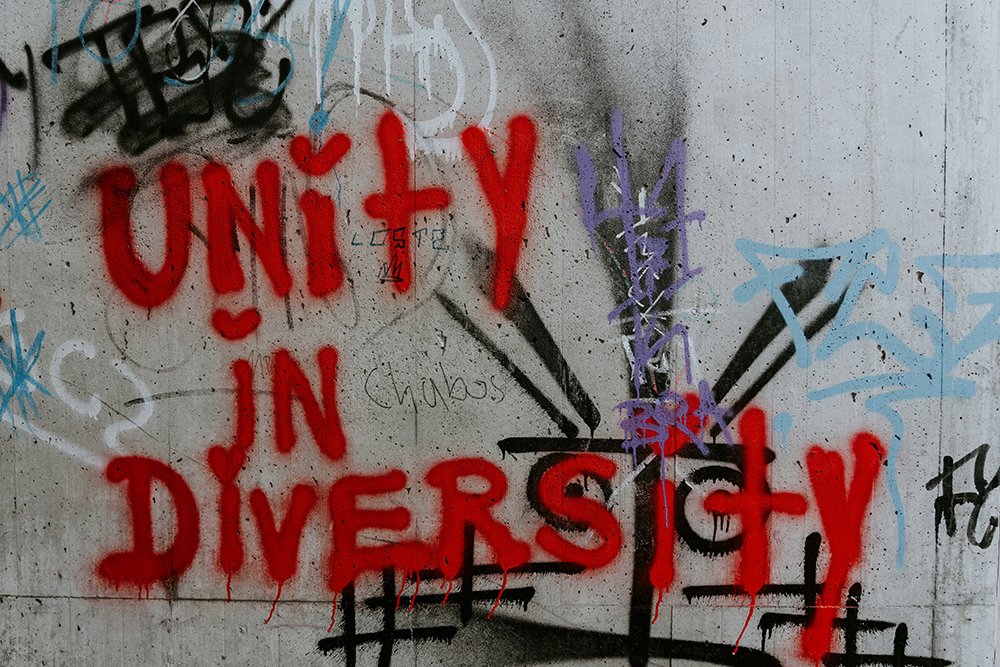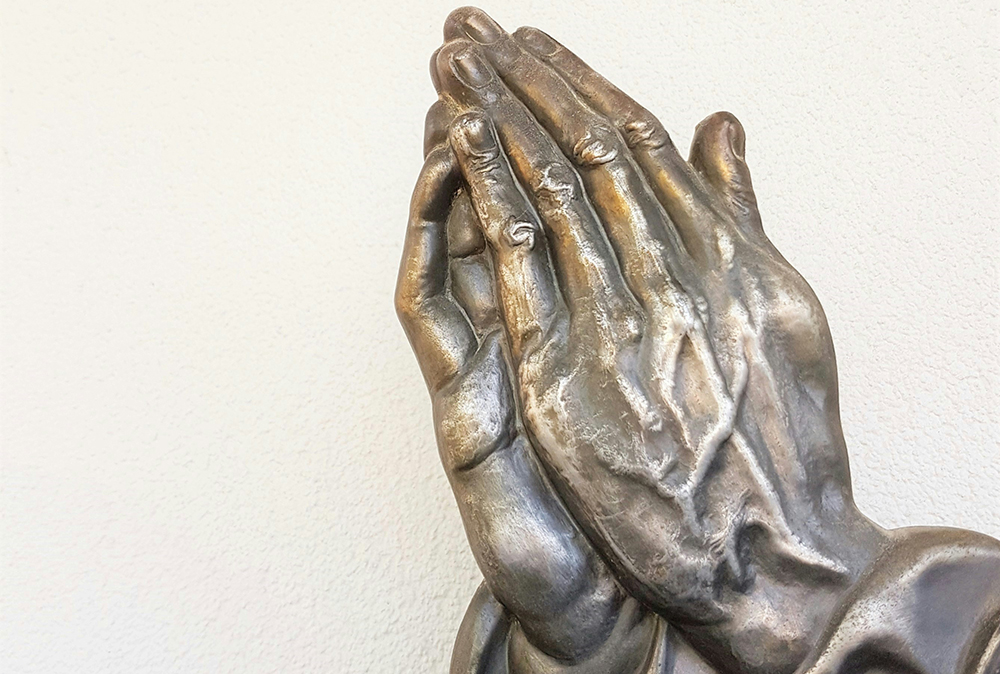
(Unsplash/Claudio Schwarz)
When I was an adolescent, I had friends in school and junior college who belonged to different churches, a concept I couldn't fathom because their churches weren't mentioned in the Bible. Sharon (name changed) and I enjoyed sharing our faith and love for Jesus by singing hymns together. Whenever we met, we started with: "I have found a friend in Jesus, he's everything to me, he's the fairest of ten thousand to my soul … He's the lily of the valley, the bright and morning star, he's the fairest of ten thousand to my soul." We were transported to the seventh heaven!
We had befriended each other and remained friends simply because we loved Jesus immensely. It was inevitable. However, the bubble burst one day when she invited me to spend a day with her family. Her daddy asked me many questions about my faith and what I planned to do in the future. I said I'd see which professional course I'd get admission for graduation, but I'd definitely not get married since I'd given my entire life to Jesus. He praised my love for Jesus but said their church did not believe in the value of celibacy. He even gave me some pamphlets giving reasons why Catholics were following the antichrist. That was a thunderbolt!
I was shaken and wept all night after returning home. That week, I met a priest and narrated what had happened. He told me my questions were precious as well as profound, and the bishop of the diocese would be the best person to answer me. He successfully arranged a meeting by "canonizing" me — that's what the bishop told me after I went cycling to his office. Whether he asked me to take his seat or if I did so out of nervousness, I don't remember, but I could sense he was feeling both awkward and amused finding himself on the visitor's sofa.
Advertisement
I described how my friend's family were staunch disciples of Jesus. Her brother was a pastor, and they spent their lives evangelizing. However, they seemed to spend 90% of their energies criticizing the pope and the Catholic Church. Shouldn't they focus on sharing the gospel with those who have never met Jesus? Why do elders keep fighting with each other and forget Jesus' teachings? Why don't they love Jesus like my young friends and I love him?
The bishop told me I had answered my own questions, and he had nothing to add. I was also welcomed to attend a rally for the week of prayer for Christian unity. Of course, I went for the program, but I could see through the façade of unity on the stage at that time. The host arrived an hour late, whereas the leaders of various churches prayed and gave powerful talks to the crowds without bothering to look at each other. There was an atmosphere of defensiveness and formality, as if they didn't know how to start a heartfelt conversation even if they desired to do so.
On the other hand, that year Sharon's family invited me to attend her brother's wedding, who was a pastor. It was a very simple ceremony in the church followed by a reception in the sacristy-like adjacent room. Everyone gave the couple a blessing and proceeded to the compound for a fellowship meal of plain white salted rice and cucumber salad. Every family had their fill and returned home after placing a coin on the side table as a love offering to cover the expenses. Having never seen such a simple wedding, it was a culture shock for me, but the joy was unbounded and has remained etched in my memory.

(Unsplash/Deb Dowd)
Later in life, when I began the first cycle of theological studies, I was motivated by the desire to apply theology to ecumenism and interreligious dialogue. Life had already offered a lot of practical experience in these areas since my school and college days, and it was unforgettable how we, as children and youth, used to share and discuss our faith experiences and convictions without any prejudice or malice. I always loved to see followers of Christ praying together despite belonging to various churches.
During my theological studies, I participated in an ecumenical student theologians' meeting and encountered several men and women student pastors and missionaries from various churches. They had a variety of experiences to share, but one point was common among us all: women felt subjugated and had fewer opportunities. On a positive note, however, it was a beautiful experience praying the Psalms together, similar to the Liturgy of the Hours among Catholics. One of my new friends tearfully shared how, in her church, there was nothing like spiritual direction or confession and how she was moved talking to me about her faith life as a soul friend.
Unfortunately, today, it is challenging to engage in a conversation with a mixed group of people without noticing ideological and religious intolerance and polarization. A few days ago, I was speaking with a Hindu friend about how wonderful it would be to organize a get-together of students from our batch in college. We tried motivating classmates, but finally, she said she didn't feel like trying anymore because of the increasing intolerance, small talk and gossip she was experiencing through these contacts. She, however, insisted that both of us should keep in touch and have some solid sharing at a deeper level. I felt both disappointed and overjoyed.
I always loved to see followers of Christ praying together despite belonging to various churches.
Among such efforts toward unity, I also try to attend a weekly recollection with an ecumenical group online. Recently, we had a sharing on "breath prayer." The resource person asked the participants to be aware of our breathing and its sound. As I was listening to my breath, I felt it sounded like the presence of Jesus within me asking, "Who … who … who (am I to you)?" and me asking him the same question. During a second round of listening to our breath sounds, it seemed like a wholehearted "yes … yes … yes" from me to Jesus and Jesus to me.
I believe that's the heart of our Christian prayer as individuals and communities, irrespective of which church we belong to. Amidst the ideological battles raging among the followers of Christ all over the world, I sometimes remember a bishop saying, "Am I Google to give you an answer to every question? It is the task of theologians and mystics like you to find answers!" I now believe that life is not a problem to be solved but a mystery to be lived by transcending self to love God and neighbor.




